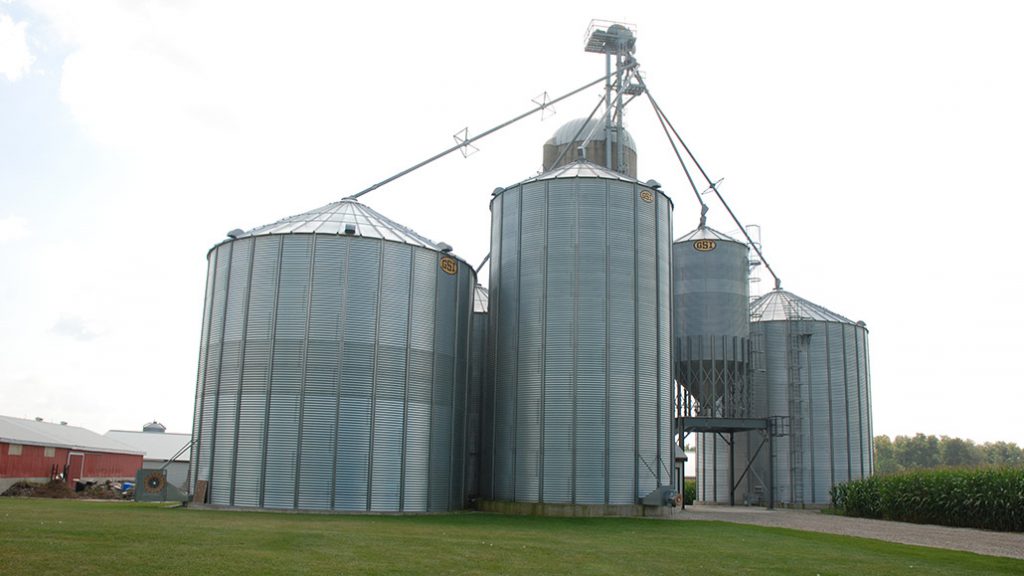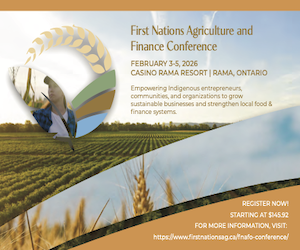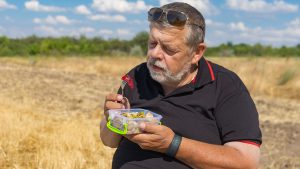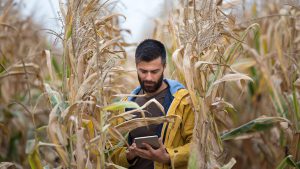Harvest safety
PLAN AHEAD TO PREVENT INCIDENTS

HARVEST 2020 WILL be much different than other years, given the need to remain vigilant about COVID-19.
“We’ve developed a lot of specific guidance documents to help agricultural workers, supervisors, and employers,” says Jay Remsik, a consultant with Workplace Safety and Prevention Services (WSPS) based in London, Ontario.
“Farmers need to think about their own policies and procedures,” he says.
Among the resources available on the WSPS website are proper hand hygiene, mask use and where to obtain them, physical distancing protocols, and sanitation and disinfection advice. There are also checklists for farm businesses to ensure they have all the plans, procedures, and equipment to keep everyone safe from the virus.
COVID-19 ASSISTANCE
In late June, Remsik was gearing up to deliver a ‘Tailgate Talk’ in the parking lot of one of his clients where he would maintain distancing and bring his own pen to sign in. While the talk he was preparing for was about tractor safety, other talks cover everything from recognizing farm equipment hazards to proper chemical storage and use to preventing heat stress.
Remsik points out that anyone who employs people must be registered with the Workplace Safety Insurance Board (WSIB). Inspectors from the WSIB enforce the rules, and if they find problems on a farm, they issue orders and people like Remsik advise farmers on how to come into compliance for free. Remsik will also provide workplace safety training, for a fee.
While Tailgate Talks are available online and can be delivered by owner/operators, some prefer to bring Remsik on-site to be a third-party voice to amplify the safety message with employees.
Also in June, the provincial government introduced the $15 million Enhanced Agri-food Workplace Protection Program to help more operations, including farms and meat processors, with the costs of facility modifications, personal protective equipment, and other measures needed to keep workers safe from the virus. Funding is also available for safety audits, developing safety plans, and gap analyses.
TRAINING ESSENTIAL
One of the big tips Remsik has for farm employers is to ensure that employees are qualified and trained to do the jobs they’re asked to do.
“Don’t assume they know,” he says. Even if there’s only one hired hand, it’s important to take the time to do the training and to document that it’s been done.
Remsik says it can be as easy as printing off, say, the Prevent Tractor Overturns Tailgate Talk, delivering the training and putting the date and participants’ names on the document.
Rob Gobeil agrees about the training and adds that having safe work procedures in place that are followed by everyone — especially around grain bins and augers — is crucial. Gobeil is the agricultural health and safety specialist with the Canadian Agricultural Safety Association.
He advises that farmers should have enough people to get the work done — even with labour shortages, and suggests looking outside the agricultural sector and into third-party job services for employees.
“Trying to do everything means more fatigue, and more fatigue means judgement is more impaired,” he says, noting that it’s especially dangerous when farmers are taking equipment down the highway, for example.
“It’s also important to have your equipment properly serviced and maintained, not only for safety, but for the productivity of the farm,” he says.
GET SOME REST
Gobeil emphasizes that getting enough rest — while sometimes hard to do during the height of harvest — is vital. Most people need seven to nine hours of sleep to function properly, and taking a nap – even while in the field — can help farmers and workers stay alert and safer.
“You need to be as close to 100 per cent capacity mentally as you can be,” he says.
He says that staying hydrated and eating healthy foods are important to keeping your energy level up.
“Think about eating an apple as opposed to a chocolate bar,” he says, noting that the fruit will give you a longer-lasting boost than the quick burst and fall-off of the candy.
Gobeil also says that grain farmers should make sure they clean out their bins and ensure guards are in place on augers, conveyors, and bin sweeps.
“Anything bin-related should be in proper and safe working order,” he says, adding that if grain dryers are needed, they should be well cleaned out because dry matter in the nooks and crannies can present a fire hazard.
Both experts point out that a ‘working alone’ policy is a must, and it should be reviewed with everyone working on the farm.
“You need to check in with someone, especially if you’re moving from field to field,” Remsik says. Sending a quick text, or if the wi-fi is bad, using a two-way radio to tell others where you are can be a life saver, if something goes wrong.
Both emphasize that having a plan and knowing what to do in an emergency can also make a huge difference.
“It can cover everything from sickness to injury, fire, and extreme weather,” Gobeil says.
STOP. THINK. ACT.
The WSPS has teamed up with Imperial Oil and Esso to deliver a common-sense, easy-to-use program called Stop. Think. Act. The Stop means taking a minute to assess any potential hazards before you start a task. The Think is about thinking through whether you have the right tools and equipment, what problems could crop up (such as children playing nearby), and whether you are mentally and physically prepared to do the task at hand. Finally, the Act part could be to safely proceed with the job, or not do it at all, if you don’t have all the elements you ran through during the thinking stage.
Farm safety resources, including templates and checklists, are available at www.wsps.ca and www.casa-acsa.ca. •


























